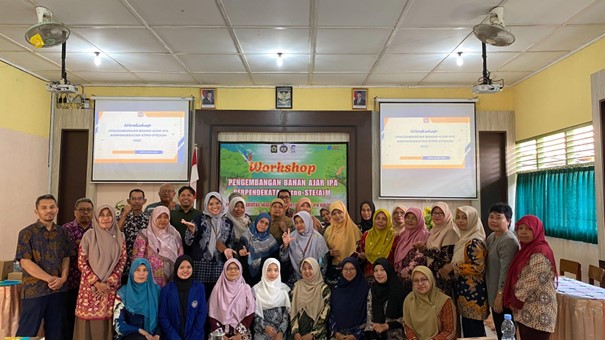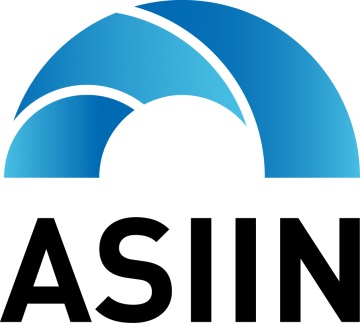 English
English Bahasa Indonesia
Bahasa Indonesia
You are here
Integration of Science and Culture: Workshop on Developing Science Teaching Materials Based on etnoSTE(A)M
Primary tabs

The middle of July 2025 marks a significant milestone for the transformation of science education in Kulonprogo District. The team from Yogyakarta State University conducted a Workshop on the Development of Science Teaching Materials Based on Ethno-STE(A)M, which is part of the Community Service (PKM) activities led by the Professor. The team consists of Prof. Dr. Asri Widowati, S.Pd.Si., M.Pd. as the chairperson, Dr. Laifa Rahmawati, M.Pd., Dita Puji Rahayu, S.Pd., M.Pd., Dr. Winarto, M.Pd., Yuli Arti, M.Pd., Dea Cindy Shonia, S.Pd., M. Fahrezy, S.Pd., and Nurinda Aqmalia Hafidza, S.Pd., and assisted by students: Akbar Nata Nagoro, Alya Dwiyussa Herdiyani, Angelina Pratama, and Firyal Amani Azzahra.
The Workshop on the Development of Science Teaching Materials Based on Ethno-STe(A)M was conducted in two sessions, namely online and offline. The online session, held via Zoom Meeting on 19 July 2025, was attended by 32 science teachers from the Kulonprogo Science Teachers' Association (MGMP IPA Kulonprogo), beginning with opening remarks from Prof. Dr. Asri Widowati, S.Pd.Si., M.Pd., as Chair of the DIY Science Education Association (PPII DIY) and chair of the event. This was followed by a welcome address from Parjiyana, S.Pd., as the Chair of the Kulonprogo Science Teachers' Association (MGMP IPA Kulonprogo). The workshop was interactive and inspiring, supported by presentations from Yuli Arti, M.Pd., on the Basic Concepts of Ethno-STe(A)M, and Prof. Dr. Asri Widowati, S.Pd.Si., M.Pd., on Types of Teaching Materials in STe(A)M and Effective Strategies for Mapping Science Curriculum Content within the STe(A)M Framework. During the presentations, examples of STe(A)M-based worksheets were also displayed.
After understanding the concept in theory, the workshop was held offline on 26 July 2025 at the Multipurpose Building of SMP Negeri 1 Pengasih, attended enthusiastically by 35 teachers from the Kulonprogo Science Teachers' Working Group (MGMP IPA). During this face-to-face session, the teachers were introduced to VR (Virtual Reality) and invited to try using Oculus, which opened up a new experience of exploring science materials in a 360-degree space, as well as Millea Lab, a digital laboratory platform that offers interactive and enjoyable science experiment simulations. It was not just about trying out the tools; the teachers were also guided by the Yogyakarta State University team to evaluate the potential use of this technology in daily teaching. The focus was on creating a learning narrative that connects local phenomena—such as batik, agriculture, or local customs—with science concepts and packages them into an engaging digital experience. This initiative demonstrates that science education does not have to be confined to conventional methods. Through Virtual Reality technology integrated with an ethno-STe(A)M approach, local wisdom can be elevated as a bridge to understanding science in a more relevant way for students.
Kontak Kami
Program Studi Pendidikan IPA
FMIPA Universitas Negeri Yogyakarta
Kampus Karangmalang Yogyakarta 55281
Email: s1pend_ipa@uny.ac.id
Instagram: @depdikipauny


Copyright © 2026,


